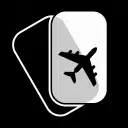Innovations that Improve Private Jet Safety – Fuel Additives
During the summer months, hazardous flight conditions can often be disguised by the season’s clear skies and warm temperatures. Even in the middle of summer, your charter jet can still encounter hazardous fuel system icing conditions at higher altitudes. For this reason, it’s important to understand the causes of fuel system icing and the measures that your pilots can take to ensure your personal safety during your next air charter flight.
Aircraft icing that occurs during the winter months is usually caused by freezing rain and icy conditions in the atmosphere. In the summer and winter months, there is also a chance that water trapped inside your fuel tank can also freeze at freezing temperatures. To begin with, all aircraft have a small amount of suspended water in their fuel tanks. At higher altitudes, jet fuel starts to cool and the suspended water in the fuel separates and turns into water droplets. These water droplets eventually turn into ice crystals when the aircraft reaches freezing temperatures at higher altitudes.
Once water droplets turn into ice crystals, they can easily get caught in the engine’s filters and block the aircraft’s fuel flow – this becomes a serious problem. At best, this will only reduce the aircraft’s performance capabilities, but at worst it can starve the engine of fuel and eventually lead to a complete engine failure. For obvious reasons, an engine failure can significantly decrease your own personal safety.
To ensure your aircraft’s engine doesn’t fail during flight, pilots often rely on fuel additives to prevent ice crystals from forming in their aircraft’s fuel tanks. The most popular product on the market is called Prist and it contains a chemical that lowers the freezing point of water droplets in fuel. It does this by seeking out moisture, encapsulating the water droplets and lowering the freezing point of the water. When used properly, Prist can effectively eliminate the chances of ice forming in your aircraft’s fuel tanks.
In order for Prist to work properly, it must be added at the same time your aircraft is fueled. Some aircraft fueling stations already sell pre-mixed fuel with the Prist additive to make it easier for pilots to ensure the Prist is added properly. The cost of pre-mixed fuel is more expensive by about three cents a gallon but this a small price to pay when considering the safety gained by using Prist.
There are several private jet aircraft that make Prist mandatory for safe flight operations. These aircraft include the Beechjet 400, Learjet 25 and 35, Citation I and II and the Piaggio Avanti. In addition, a growing number of very light aircraft in the charter market are making Prist mandatory for flight operations. There’s also aircraft with fuel heating systems that do not require Prist or other fuel additive.
For your next charter flight, ask your pilots if they added Prist or other fuel additive to your fuel system before takeoff. This will ensure that your pilots have taken the necessary precautions to protect you and your aircraft from fuel system icing occurring in flight. Another option is to call a reputable air charter agency such as Stratos Jet Charters to suggest an available charter aircraft with built-in fuel heaters that can prevent fuel system icing.
Empty Leg Flights
- Heavy
- Challenger 850
CYYZ (TORONTO)
CYYZ Airport
OPF (MIAMI)
OPF Airport












